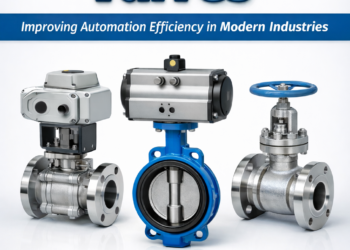In an era where sustainability, ethical practices, and transparent governance are paramount, businesses are increasingly compelled to communicate their Environmental, Social, and Governance (ESG) performance in a clear, auditable manner. As regulatory bodies and stakeholders amplify demands for accountability, the reliance on technology to streamline ESG reporting has surged. In this context, the pursuit of the best ESG reporting software in 2025 has become a strategic imperative for organizations determined to align with evolving standards while demonstrating corporate responsibility.
The landscape of ESG reporting is more dynamic than ever. Regulatory frameworks such as the EU’s Corporate Sustainability Reporting Directive (CSRD), the SEC’s climate disclosure rules, and global initiatives like the ISSB’s sustainability standards are raising the bar for ESG transparency. For companies to meet these stringent criteria, mere spreadsheets and manual tracking no longer suffice. Instead, advanced platforms designed specifically for ESG data management and reporting are at the forefront of corporate strategy.
The best ESG reporting software solutions in 2025 are not only robust in data collection but also equipped with intelligent analytics, real-time dashboards, and seamless integration with enterprise systems. They empower businesses to gather quantitative and qualitative ESG metrics, assess risks and opportunities, and generate tailored reports that comply with international standards. More importantly, they help translate data into meaningful insights that drive informed decision-making and sustainable transformation.
One defining characteristic of today’s top-tier ESG tools is automation. By automating data capture across environmental impact, workforce diversity, supply chain ethics, and governance policies, companies can reduce human error and enhance reporting efficiency. Many of the best ESG reporting software platforms now utilize artificial intelligence to detect anomalies, flag gaps in disclosures, and forecast ESG trends based on historical patterns. This forward-looking capability is invaluable for companies aiming to stay ahead of regulatory and stakeholder expectations.
Moreover, the usability of ESG software has significantly evolved. Intuitive interfaces, customizable templates, and cloud-native architectures ensure that sustainability teams, compliance officers, and executives can all navigate the software with ease. This accessibility enhances collaboration across departments, fostering a culture of shared responsibility for ESG performance. It is no longer a siloed function but an integrated part of strategic planning and enterprise risk management.
Another key trend in 2025 is the emphasis on stakeholder communication. The best ESG reporting software enables organizations to craft compelling narratives supported by verifiable data. Whether addressing investors, customers, employees, or regulators, these tools allow companies to articulate their ESG commitments in a transparent, credible, and engaging manner. Enhanced visualization features help transform dense datasets into digestible formats, increasing engagement and trust across audiences.
Security and compliance are also critical dimensions of modern ESG platforms. As ESG disclosures become material to financial statements, safeguarding the integrity of data becomes non-negotiable. Leading software providers implement end-to-end encryption, audit trails, role-based access, and compliance with data privacy laws such as GDPR. These safeguards reinforce confidence in the reliability of ESG reporting and ensure that organizations can withstand scrutiny from auditors and regulators alike.
One of the biggest advantages of adopting the best ESG reporting software is the ability to benchmark performance against industry peers. Benchmarking tools offer comparative insights into how a company’s ESG metrics align with sector norms, global goals such as the UN’s Sustainable Development Goals (SDGs), or ESG indices. These insights empower companies to set realistic targets, track progress, and position themselves as leaders in sustainability.
Additionally, integration capabilities have become a major differentiator among ESG tools. In 2025, software that effortlessly syncs with ERP systems, HR platforms, procurement databases, and IoT-enabled environmental sensors is highly sought-after. This interoperability ensures data accuracy and consistency across the enterprise, minimizing duplication and reducing reporting fatigue. The best ESG reporting software thus becomes not just a reporting mechanism but a central hub for ESG intelligence.
It is also worth noting the importance of scalability. As businesses grow and their operations become more complex, their ESG needs evolve. Software that accommodates this growth—whether by adding new reporting frameworks, supporting multiple geographies, or scaling data ingestion—proves to be a future-proof investment. Forward-thinking organizations are increasingly favoring modular ESG platforms that evolve in tandem with their sustainability journey.
Customization remains vital in 2025’s landscape. Companies across sectors face distinct ESG risks and opportunities, and a one-size-fits-all approach no longer suffices. The best ESG reporting software offers industry-specific templates, KPIs, and risk assessment tools tailored to the nuances of sectors such as energy, manufacturing, technology, and finance. This specificity enhances the relevance and materiality of ESG disclosures, bolstering credibility among stakeholders.
Furthermore, the collaborative ecosystem around ESG tools is expanding. Many platforms now offer access to third-party data providers, ESG rating agencies, and consultant networks. These partnerships enrich the software’s analytical capabilities and provide users with a broader context for interpreting their ESG performance. This ecosystem approach is especially beneficial for companies seeking external validation or preparing for sustainability-linked financing.

In summary, uncovering the best ESG reporting software for 2025 requires a discerning approach that prioritizes functionality, compliance, scalability, and strategic alignment. Organizations must look beyond the basic promise of data aggregation and demand platforms that deliver actionable insights, foster engagement, and support long-term sustainability objectives. As ESG reporting continues to evolve into a cornerstone of corporate governance, investing in the right software is no longer optional—it is essential.
To thrive in this environment, companies must embrace technology as a catalyst for responsible growth. By deploying sophisticated ESG reporting solutions, businesses can not only meet regulatory demands but also strengthen stakeholder trust, enhance operational resilience, and contribute meaningfully to a sustainable future. In the end, the best ESG reporting software is the one that empowers organizations to transform ESG compliance into ESG leadership.

















